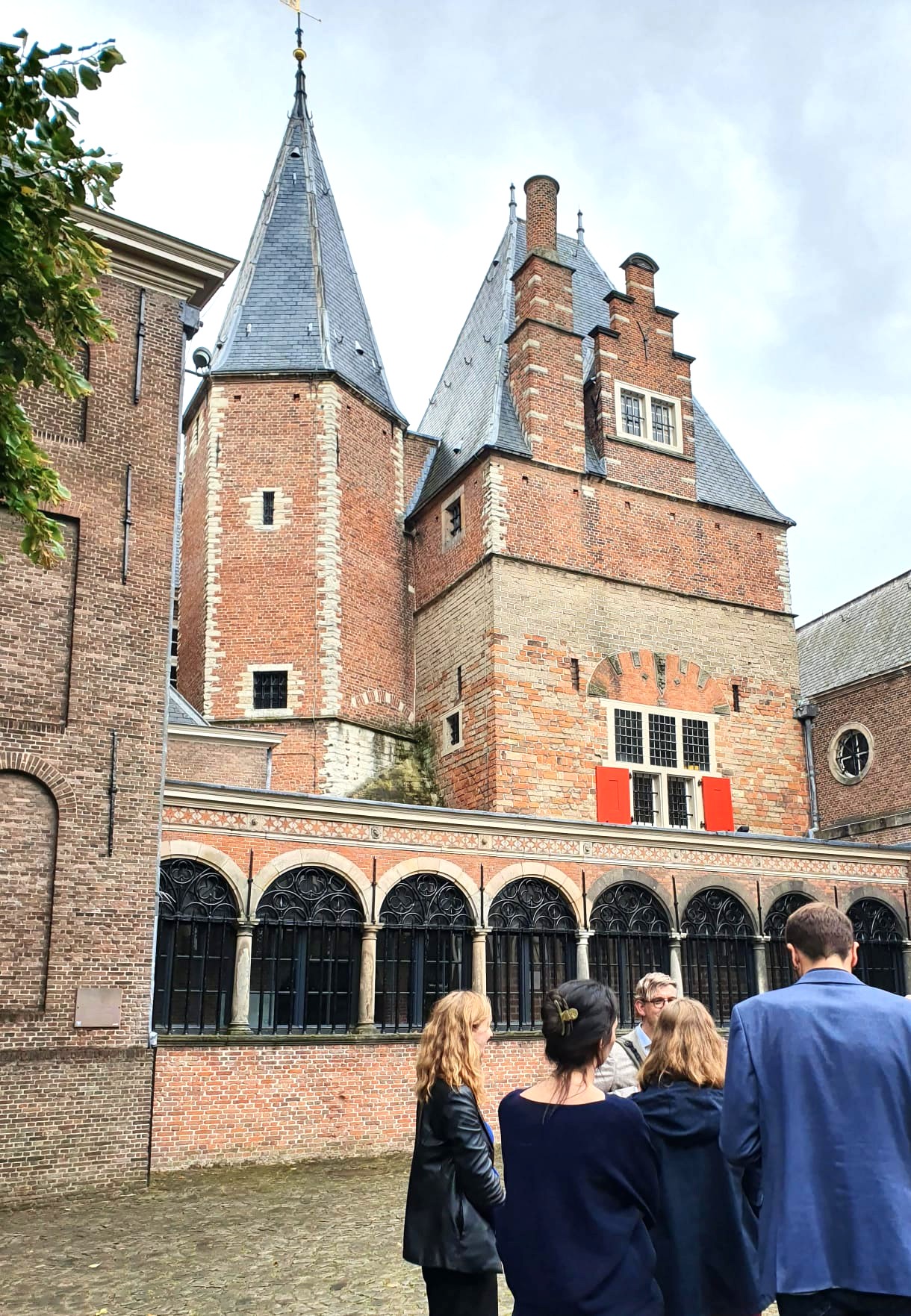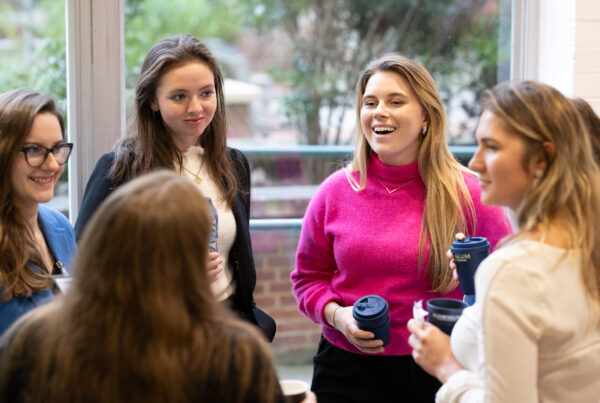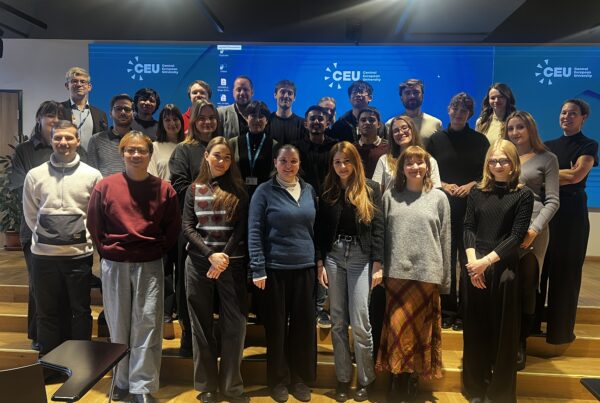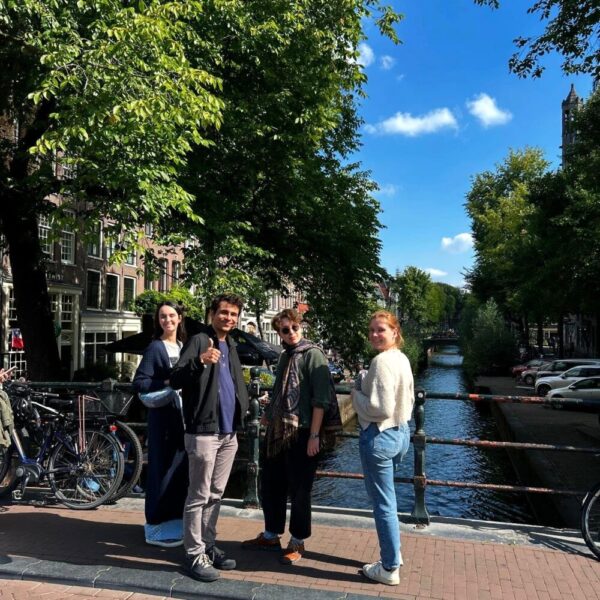
About the Author:
Elio Soria Fernandez is a Master’s student in Classical Studies – a joint degree offered by the Complutense University of Madrid (UCM), the Autonomous University of Madrid (UAM), and the University of Alcalá (UAH).
Day 1
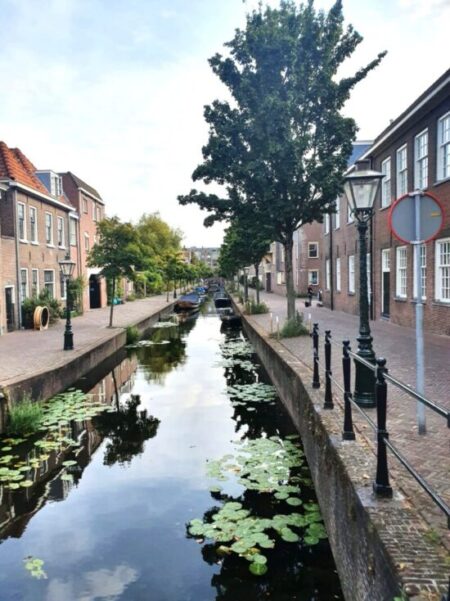 I arrived at Leiden at noon after a long journey from Madrid. This was my first time in the Netherlands, so I enjoyed very much spending the afternoon taking long walk around the city, strolling through bridges and alongside canals.
I arrived at Leiden at noon after a long journey from Madrid. This was my first time in the Netherlands, so I enjoyed very much spending the afternoon taking long walk around the city, strolling through bridges and alongside canals.
Later in the evening, I met up with the participants of the event for welcome drinks. Introductions were made and we had a merry evening getting to know each other as night fell on De Burcht. While people inside the café played trivia (a hard one, according to the locals), we sat at the terrace listening to each other’s PhD/master’s projects, discussing the state of Classics and the life of the classicist in each of our countries.
Day 2
The conference focused during the first day on multipolarity in the Ancient world – borders and interactions between the global and the local, as well as long-distance trading and cultural contact, all this through archaeological, literary and historical points of view.
During the lunch break, Thirza from Leiden guided us through the University buildings – pleasing, silent places, with a perfect coexistence of the old and the new. It looked like a nice place to study as we calmly walked under a light rain. The meals and breaks during the conference were a very good time for everyone to share opinions and thoughts in a friendly, joyful atmosphere.
Day 3
Throughout the second day of the conference the students’ presentations discussed local vs. global identity, resource provenance, and political integration. We learnt about recent computer resources that may be used for the archaeology of global connections, and many key points for general research.
During a break we went on a guided tour to the Rijksmuseum van Oudheden, in which we took a close look, among other pieces, to a mysterious bronze dodecahedron, of which the use is not yet clear. We also entered the Temple of Taffeh, granted to the Netherlands by the Egyptian government during the building of the Aswan Dam.
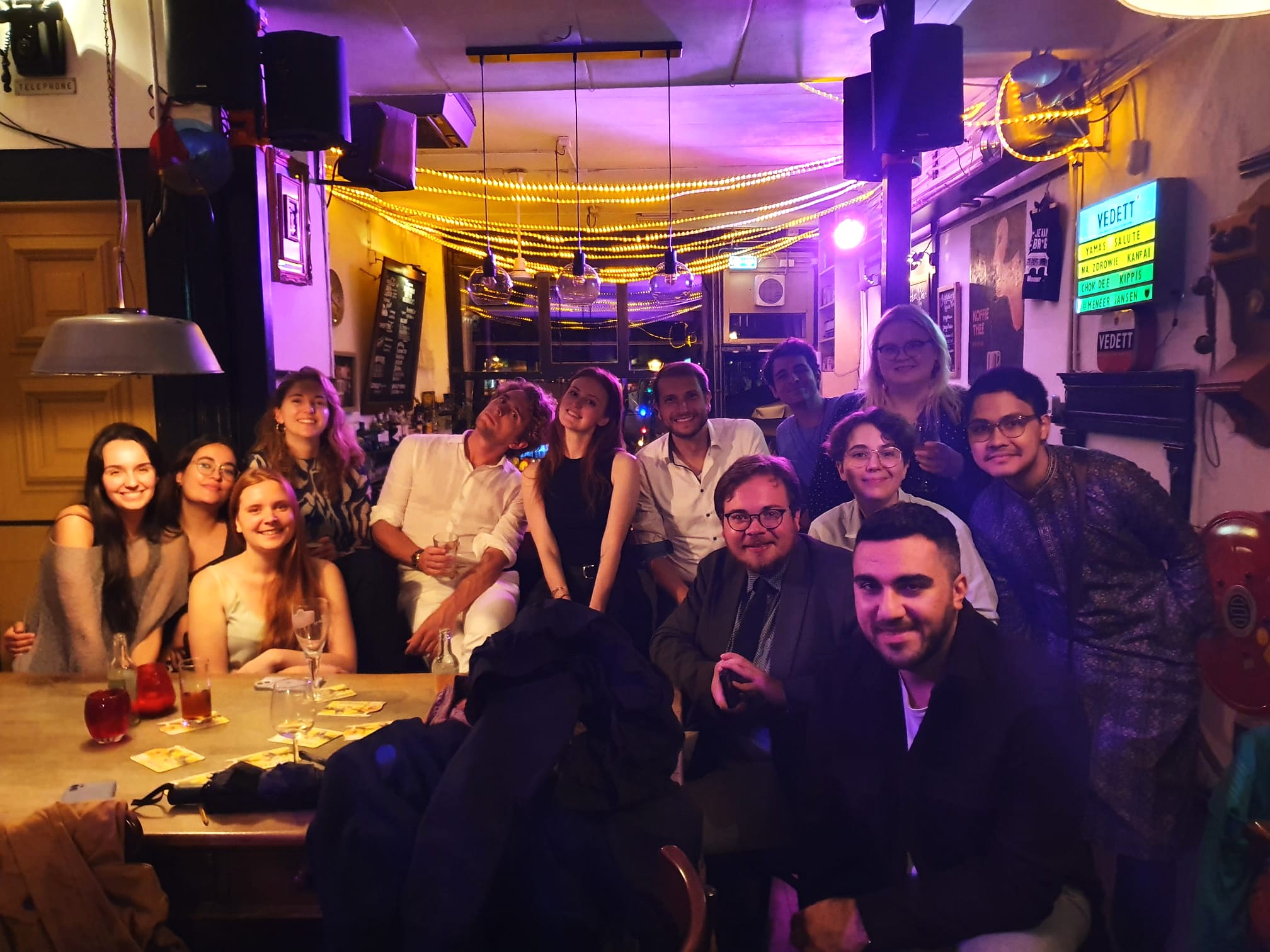
After dinner, we had some drinks, during which we wrote poems on the coasters in Spanish, French, Greek, Sanskrit and Dutch. Farewells were melancholic, but hopeful for future meetings and long-lasting friendships.
Day 4
I woke up early and took a train to Amsterdam with some of the participants whose train or flight times allowed for some sightseeing. We visited the Rijksmuseum. After a walk around the city, we said goodbye to the Netherlands. Tired, but happy, I flew back home.
The Classics Colloquium was a very enriching event, in which I am very grateful to have taken part. I learnt a lot during the academic part of the conference, and it also was an amazing chance for international exchange, as well as personal growth.

